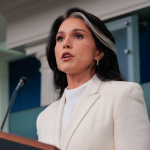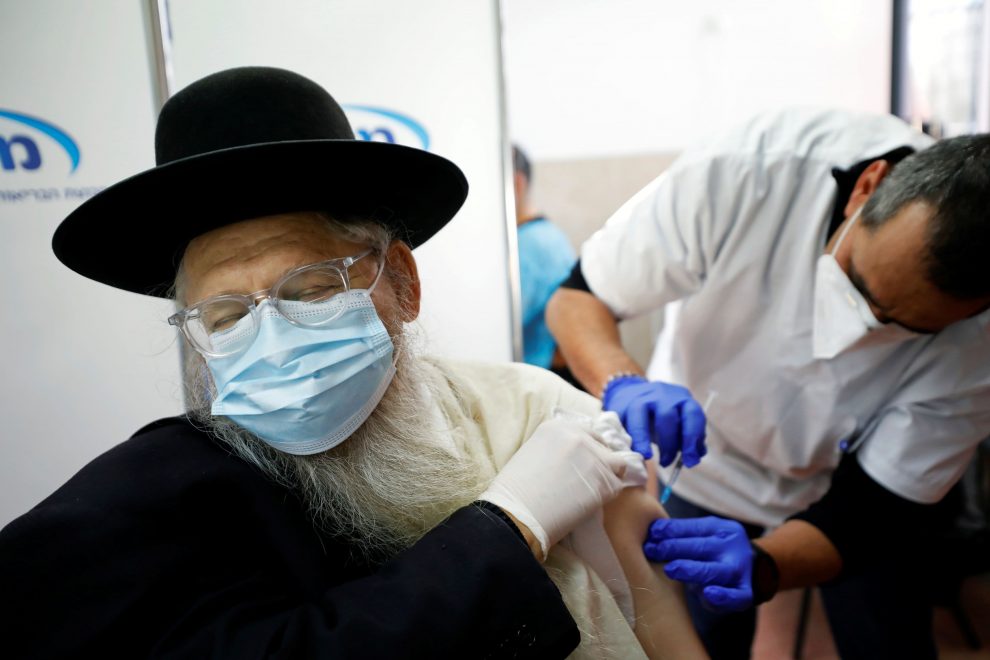Some scientists warn that too many shots might actually harm the body’s ability to fight the Covid-19 virus. But Israeli experts say there isn’t time to wait.
Israel is considering whether to approve a fourth Covid-19 vaccine dose for vulnerable people to contain the fast-spreading Omicron variant, despite debate among scientists and a lack of evidence either for or against another booster.
The panel of experts advising the Israeli government on the pandemic recognized that uncertainty, but on Tuesday it recommended giving a fourth dose, concluding that the potential benefits outweighed the risks. It pointed to signs of waning immunity a few months after the third shot, and said that any delay in additional doses might prove too late to protect those most at risk.
But some scientists warned that the plan could backfire, because too many shots might cause a sort of immune system fatigue, compromising the body’s ability to fight the coronavirus. A few members of the government’s advisory panel raised that concern with respect to the elderly, according to a written summary of the discussion obtained by The New York Times.
Prime Minister Naftali Bennett, has made clear he supports a fourth shot, and Health Minister Nitzan Horowitz has suggested that a new round of boosters could get underway by Sunday. But by Thursday evening, the health ministry had not acted on the advice, and a senior ministry official said it was waiting for more data from other countries.
Israel, a small country with an efficient public health system, was a leader in rolling out the first round of Covid vaccinations and later in giving booster shots, so its results have been closely watched by the rest of the world. Its aggressive pace has put Israel in position to assess early how effective the shots are and how quickly the protection wears off.
“The price will be higher if we don’t vaccinate,” Dr. Boaz Lev, the head of the advisory panel, said at a news conference late Wednesday. Describing the spread of Omicron as “a kind of tsunami or tornado,” he added, “We don’t have a lot of time to make decisions.”
With Omicron sweeping the world at alarming speed, governments are scrambling to figure out how to contain it in the face of significant public pressure against reimposing harsh restrictions on daily life, curbing holiday celebrations and deepening the economic pain wrought by two years of pandemic.
A new British report shows that booster doses are less effective against Omicron than previous variants, and their effectiveness wears off faster — within 10 weeks. Vaccine makers are trying to adjust their shots to target Omicron.
In addition to concerns that a fourth shot in less than a year could actually weaken immunity, some experts said Israel’s government had still not made the most of other options, such as vaccinating more of the unvaccinated or giving a third shot to about a million eligible citizens who have so far not received one.
Along with the generally sparse knowledge about Omicron, the effect of a fourth dose against the new variant is also unknown. But the country’s medical experts point to waning immunity in those 60 or older, who were the first to receive the third shot starting in August.
Israeli researchers from the Health Ministry and several academic institutions presented data to the advisory team that made the recommendation for the fourth shot on Tuesday. The presentation, obtained by The Times, showed a doubling of the rate of infection from Delta among the 60-plus age group within four or five months of the third shot.
There was no clear indication of reduced efficacy against severe illness.
Israel has confirmed a few hundred cases of Omicron, but officials say the new variant is much more widespread, and could overtake Delta as the dominant variant in the country within two or three weeks.
Given the fear of a major Omicron outbreak during the winter, when the hospitals are already overflowing with patients with complications of flu and other respiratory ailments, the advisory panel voted overwhelmingly to recommend a fourth dose for people over 60, those with compromised immune systems and health workers, to be administered at least four months after their third shots.
The panel did not recommend a fourth shot for the wider population at this stage. But it did advise giving the third dose three months after the second, rather than the current wait of five months.
While there is evidence that Omicron, discovered just last month, usually causes milder illness than earlier variants, Israeli officials said that by the time they have clearer information, it might be too late to protect the people most at risk.
“We can sit in our academic armchairs and wait for research from abroad,” said Dr. Tal Brosh, another member of the advisory panel, “but that’s a kind of privilege we don’t feel we have.”
Israel began giving the two-dose Pfizer-BioNTech vaccine last December and had inoculated a significant share of its population before many wealthy countries had even started. In the spring it became the first country in the world to vaccinate most of its population. Mr. Bennett, the prime minister, prided himself on an early decision in late July to administer the third shot, crediting it with successfully containing the Delta wave while keeping schools and the economy open.
The emergence of Omicron threatens to reverse those gains and send the country back into a kind of lockdown. But Israel was quick to tighten border controls and bar most foreign nationals from visiting, and it is compiling an ever-growing red list of countries with high infection rates to which Israelis may not travel without special permission, including the United States and Canada.
Mr. Bennett enthusiastically welcomed the panel’s recommendation of a fourth shot this week, saying, “The citizens of Israel were the first in the world to receive a third dose, and we are continuing to lead with the fourth.”
Germany’s health minister, Karl Lauterbach, said Thursday that he expected Germans would be getting another booster in the next year, depending on how long the protection of the third shot lasts.
But some medical professionals have suggested putting on the brakes.
Prof. Hagai Levine, an epidemiologist and chairman of the Israel Association of Public Health Physicians, said that Israel was not seeing a sharp rise in infections yet — daily infections are at around 1,200 a day, down from 11,000 at the peak of the Delta wave in August — and there was no evidence that a fourth shot was needed to prevent severe illness from Omicron.
“I respect the opinion of those who say better safe than sorry,” Professor Levine said in an interview, “and there is no problem with being prepared. But before giving a fourth shot, it is preferable to wait for the science.”
Another vocal critic, Prof. Dror Mevorach, who heads the coronavirus ward at the Hadassah Medical Center in Jerusalem, also urged waiting for more data.
“Just because we led with the third dose does not mean that there should be a fourth dose with no scientific basis,” he said. Decreasing antibodies over time is natural, he said, and boosting antibodies may have limited benefit.
The government advisory panel said its recommendation for a fourth shot stemmed from the particular confluence of Omicron and the additional burden on the health system during the winter, and may not lead so quickly to a fifth.
At first, many Israelis considered their country’s lead in vaccinating the public to be a privilege and a ticket to a quick return to normal life. But the prospect of a fourth vaccination within a year was giving some pause.
“Like many people, I’m very ambivalent,” said Chely Edery, 59, the owner of a gift store in Jerusalem. “The last thing I want is for my business to close, but I have the feeling that this time, they don’t know enough.”
Benny Muchawsky, 80, an architect, said it seemed like hysteria.
“Israel is the laboratory for the coronavirus vaccine,” he said.
Story cited here.
























